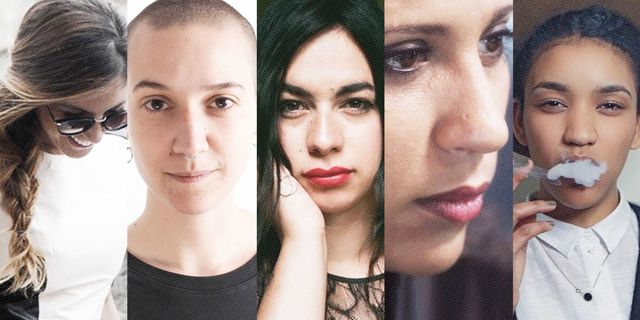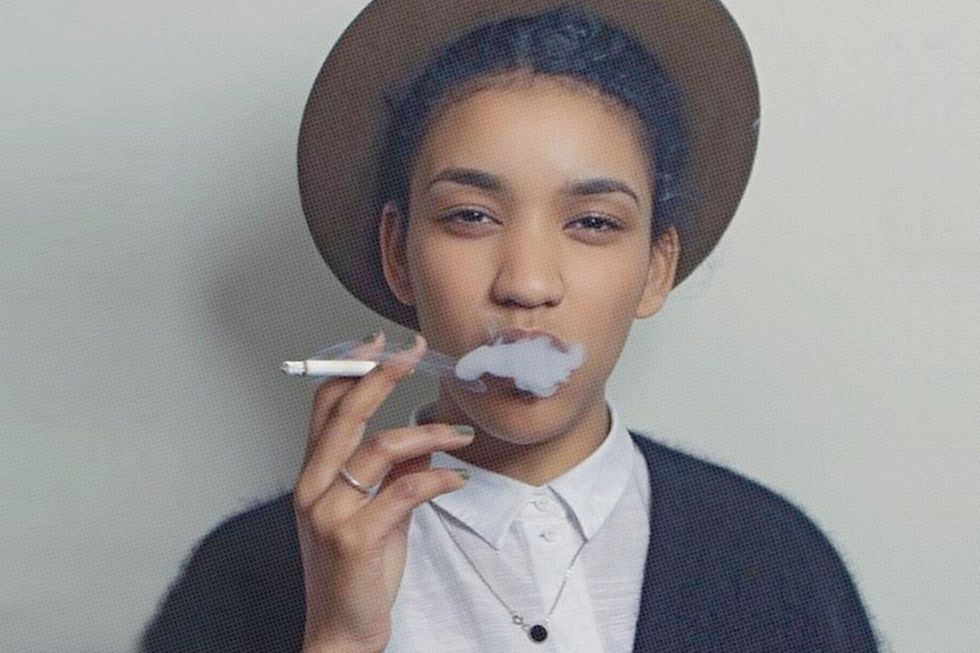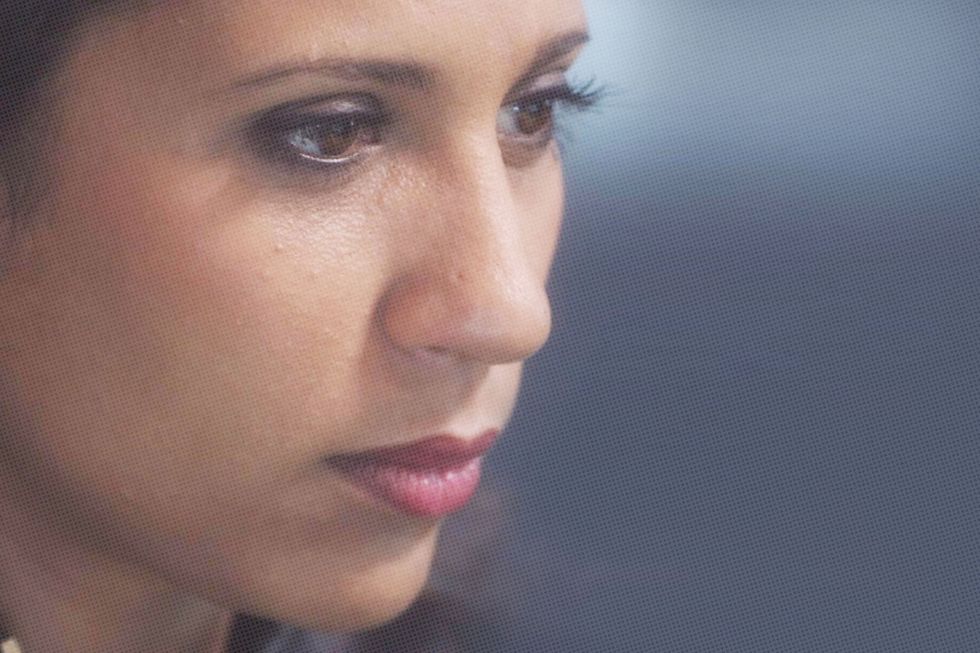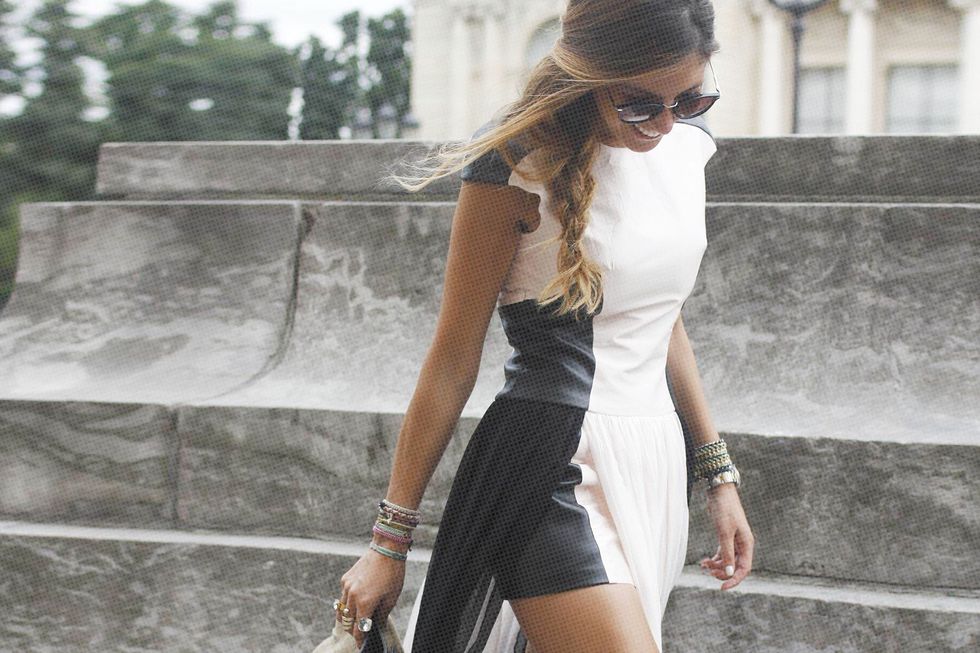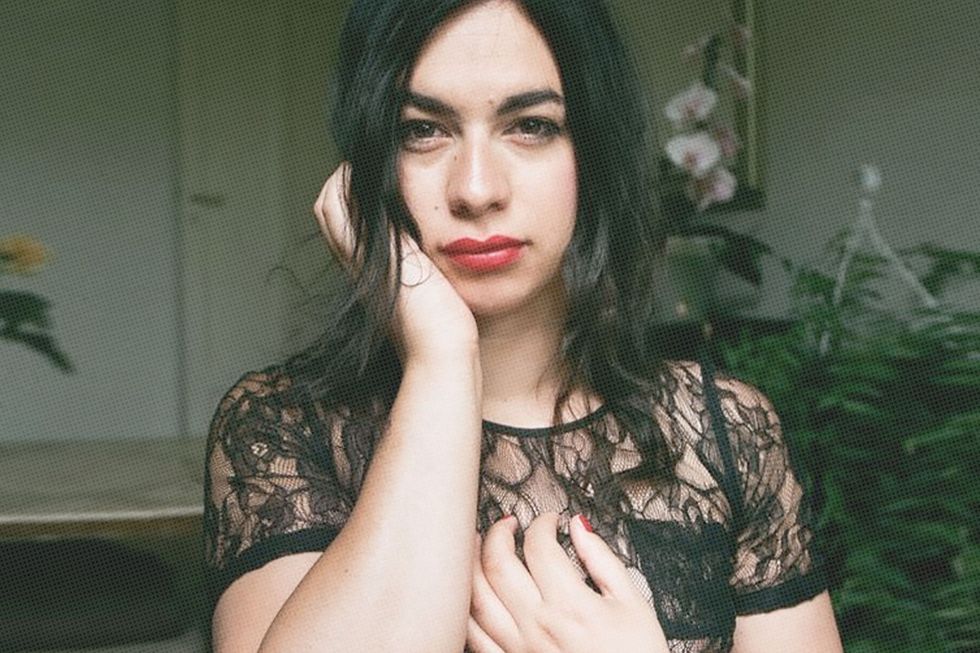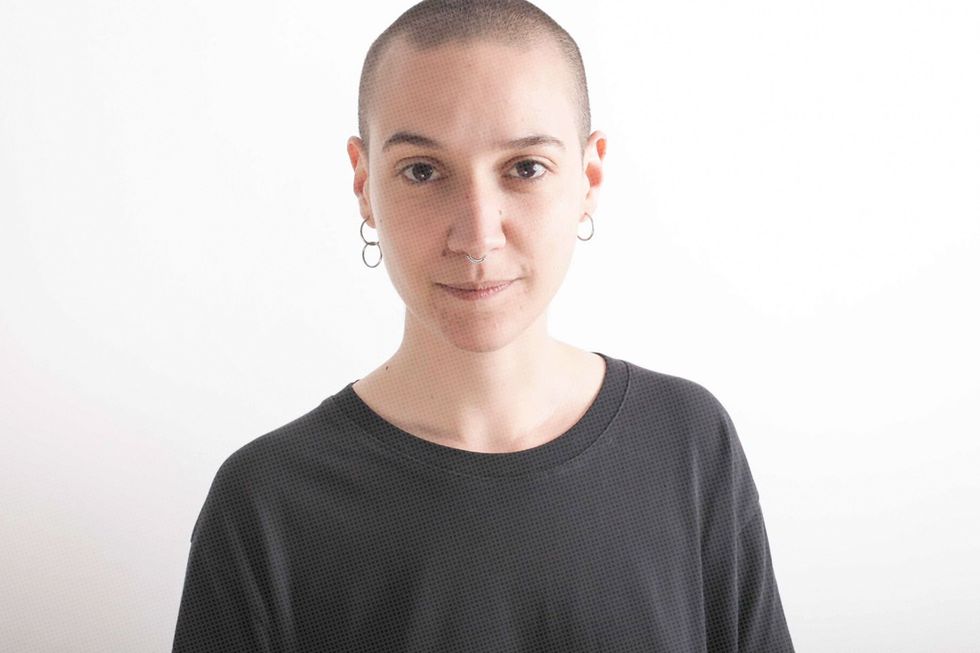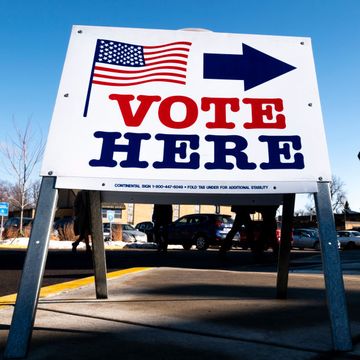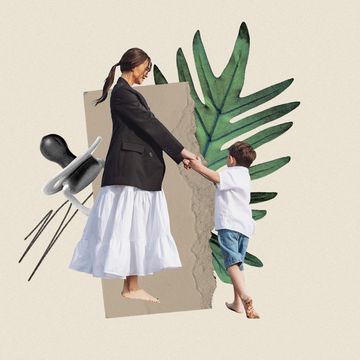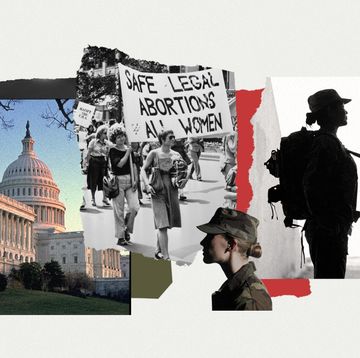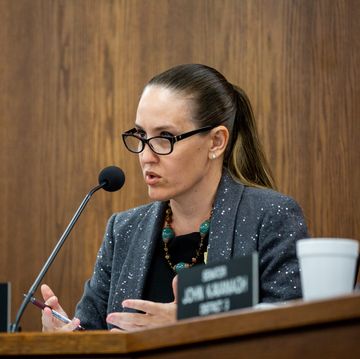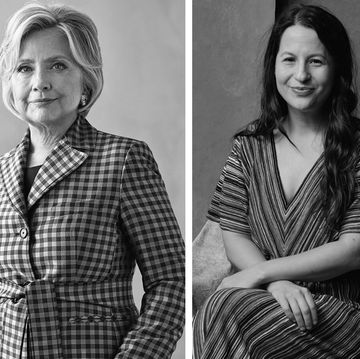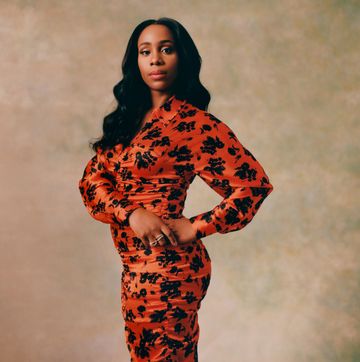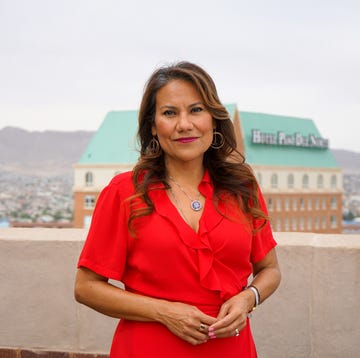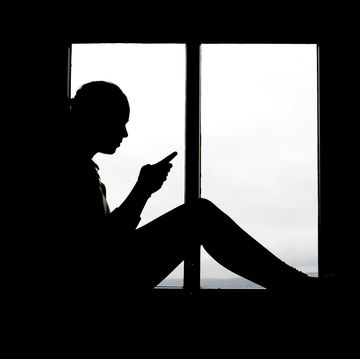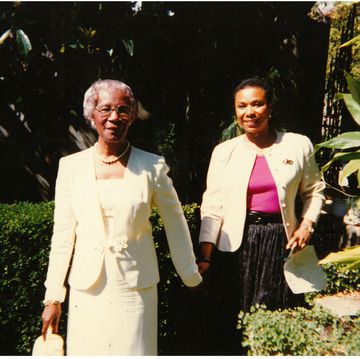On August 24, a group of armed police officers forced a woman to remove clothing that resembled a burkini on a beach in Nice, France. The incident not only humiliated an innocent woman, but pointed to a frightening escalation of the continued oppression of Muslim and Arab minorities in the country–all under the pretense of defending a secular culture. And although the modest swimming costume ban was lifted today, the stigma remains.
As debates play out in the media, the voices that are loudest tend not to come from the communities most directly affected by the discrimination. We need to hear from Muslim women. In a country where an emphasis on laïcité (secularism) is increasingly synonymous with an intolerance for difference, we ask five Parisiennes of North African descent, all of whom identify as Arab, about the burkini debate, attitudes towards Muslims and Arabs in Europe, and their vision for multiculturalism in France.
Sonia Ahmimou, 27, French of Moroccan descent.
Leather goods artisan who worked for Louis Vuitton, Hermès and Moynat, and now runs her own accessories brand, ASWAD.
"I found the burkini upheaval extremely violent: the design itself might be new, but women covering their bodies on the beach certainly isn't. As far as I can remember, many of my aunts simply went into the water fully clothed. To me, the fundamental misconception is that a woman forbidden to wear a burkini will simply switch to a bikini. She won't. She'll just stop going to the beach.
France hides behind its so-called secular culture to keep control of minorities. It is in fact a deeply Catholic country: fish is served in schools on Fridays and the only bank holidays allowed are Christian ones. Laïcité is a way of erasing the voice of whoever is different. I grew up feeling like a second-class citizen; that, as a woman of Arabic descent, I was expected to keep as quiet and be as discreet as possible. During my very first job as a craftswoman, I was asked to hide when customers walked into the shop, because seeing a non-white hand make their bags would frighten them. Paris definitely feels more open. I've learned to accept myself and make a physical and symbolic space for myself by shaving my head, playing with fashion, and launching my own brand. ASWAD means black in Arabic and my designs reference both Brutalist and Islamic architecture, a reference to my history and to my urban life. This is precisely what Frenchness means to me today."
www.aswad.fr is launching its first collection in Autumn 2016
Imen Ghouali, 34, Parisian of Algerian descent.
Documentary director specializing in the legal field and the author of Le Gang des Souris Vertes.
"The issue with this controversy is that it sets a binary between the burkini and the bikini: you are either covered and utterly dominated or practically naked and free. Women in my families have covered up to different extents, some wearing a veil, others a Djelabah, or even a tiny bikini if they felt like it. But things radically changed for Arabs after September 11: Suddenly, every single sign of faith became diabolical, connected to terrorism.
As for armed policemen getting an innocent woman to undress, this is a dumb and dangerous move: Arab youth now have a martyr figure, so to speak, the message sent out is "See, the country hates you and is even ready to publicly humiliate your mothers." This is likely to generate more anti-Semitism too, because Jews are generally not subjected to the same level of strictness in their religious display. There is also a shocking double standard with mega wealthy Gulf Arabs, who inject money into the luxury industry, and who enjoy a much freer life. This has created a worrying, anxious climate for Arabic people, myself included, in France. Recently a guy grabbed me on the bus. In the past, I would have screamed, but I stopped myself, conscious people would probably think, Watch out for the hysterical Arab girl. To me modernity is proving stereotypes wrong: I love wearing a short skirt to go to work, getting people on the bus sneering at me convinced they've got me figured out… when I'm actually on my way to directing a prime time TV show for a national TV channel. This is true empowerment."
Sofia Guellaty, 33, Tunisian.
Former EIC of Style.com/Arabia, currently a fashion consultant specializing in the Middle-Eastern market.
"I am extremely pissed off at the French and their violent, uneducated reaction to the burkini. My grandmother has always covered up on the beach, jokingly saying "I don't want to impose the sight of my thighs to people!". Modesty, especially amongst older women, is part of many traditional cultures–and is a basic human right! I have also lived in Dubai, Tunis, and New York, and no country is as provocatively aggressive against its minorities as France. Just look at the way the city is built: pretty, postcard Paris is safely encircled by a ring road, leaving all the projects safely trapped outside the city–making social progress or integration impossible.
As for myself, I always felt like I was the reassuring Arab, the light-skinned one that makes your racist neighbor say "I love Arabs! You and Ahmed my épicier are so normal!". In a country than bans religious signs, it makes the veil a sign of provocation, of true anti-establishment. It is the closest thing to a punk expression, no wonder so many kids are adopting it. I am so tempted to wear a hijab to Paris' next fashion week, just to see reactions. As a fashion editor, I am well aware of the freedom women gain from the right to cover up: Coco Chanel allowed women to step out of corsets, wear ample cuts and button-up shirts–would she be accused of joining ISIS today?"
Naelle Dariya, 29, trans-woman of Algerian and Italian descent.
Organizes queer nights in Paris.
"What most shocks me about the burkini protest is the subtext: Behind every veil is a docile, passive woman bullied by her husband. It is refusing to acknowledge that it might actually be a personal choice, that Muslim women have any freedom of thought or sense of willpower.
Being Arab in France is hard: you are trapped between a few dangerous, stigmatizing stereotypes. I started life being viewed as male and can therefore perceive the difficulty of Arabic masculinity in France: you are the thug, the dealer, the dropout, the potential terrorist. For women, it's not much better, you are either the highly exotic and sexualized object, or the victim of Muslim patriarchy trapped under a veil.
As a trans woman, I have closely seen the control of all bodies by the state–in my case, with the medical field and its discrimination and humiliating restrictions of hormone treatments, it has shown me that every single identity that doesn't fit into a singular, white, cis-normative one is subject to oppression and punishment. There is not one but a multitude of ways of being an Arabic woman, and a plethora of modern narratives, as many as there are gender identities."
Lara Abdessalem, 26, Tunisian and Dutch.
Works in independent film.
"I grew up in Toulon, have lived in Marseille, Brussels and recently relocated to Paris. Later, some members of my family grew more religious, one my uncles radicalized and moved to Syria. French discrimination encourages a sense of community and religiosity as a mode of resistance against a system that crushes rather than celebrates differences—and calls that integration! As for myself, I certainly stick out to my Tunisian family with my tattoos, piercing, and shaved head—but why shouldn't I look the way I do? I am very much a product of my environment and my time, I work in culture, have a diverse group of friends, and appearance and identity should be a way of celebrating hybridity, multiculturalism, and tolerance.
What most bothers me against the burkini affair, beyond the sheer humiliation of asking an innocent mother to strip on public beach, is that it is ignores the reality and dangers of all women's lives in big cities. Whether in Paris or Marseille, girls aren't safe to run around in a short skirt, walk home late in sexy clothing—and that has nothing to do with Islam! We live in a patriarchal, sexist society where the male gaze controls and condemns all women; we get harassed daily, insulted, grabbed on buses and chose clothing to protect ourselves from a violent environment. Just look at the trends: in capital cities worldwide, women are opting for more androgynous fashion—it's the masculine domination of the world which is the problem."
In other words, all expressions of femininity are tied to a male gaze, be it Judeo-Christian or Muslim, Eastern or Western. Women have covered up and undressed for centuries in accordance or in rebellion of patriarchal norms. France needs to accept diversity as the heart of its modernity rather than refrain it in order to maintain a (highly marketable) illusion of white bourgeoisie. Liberté, égalité, fraternité, de toutes les couleurs.
